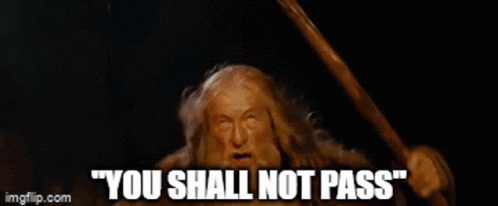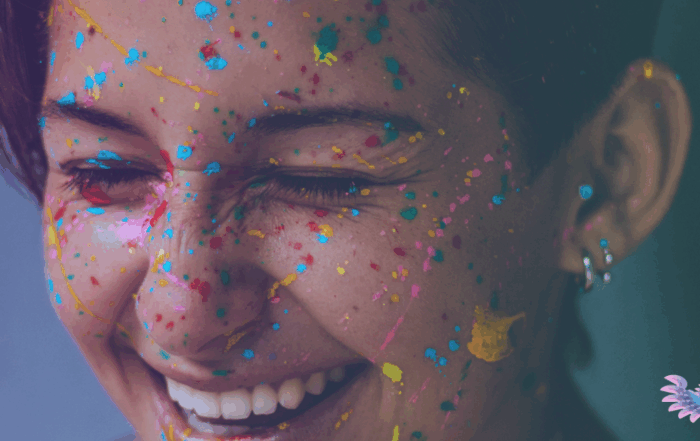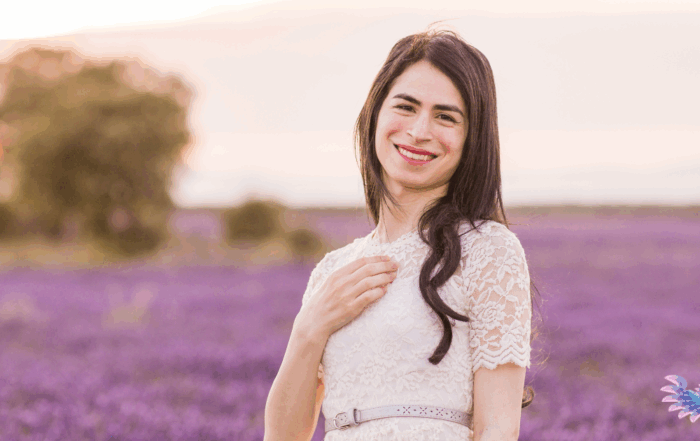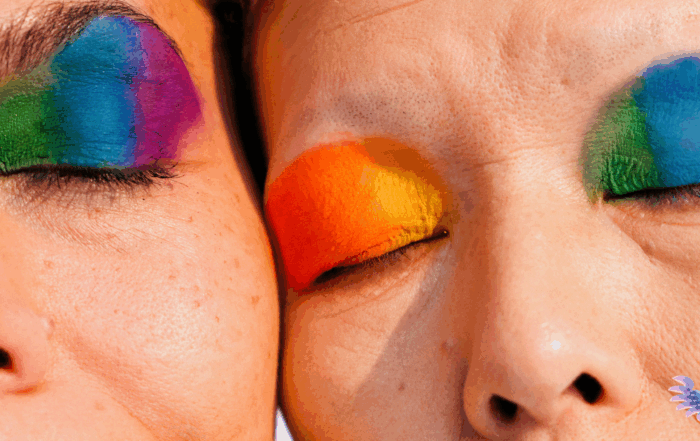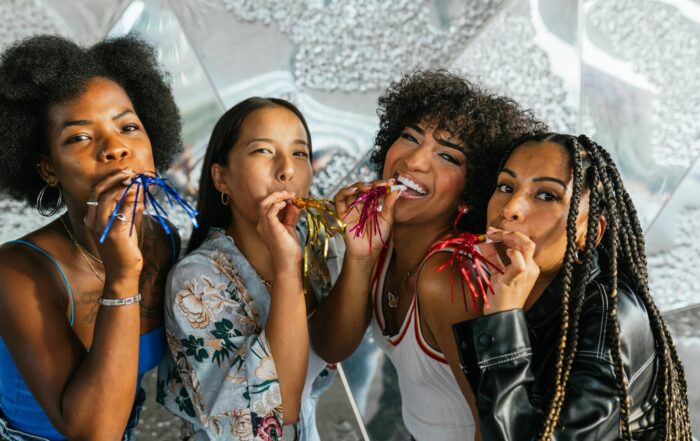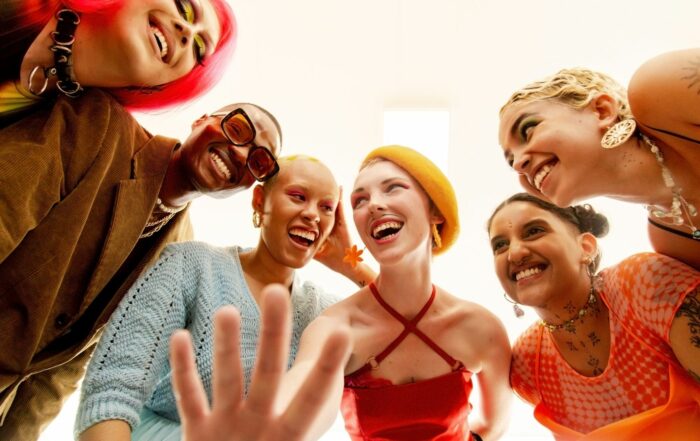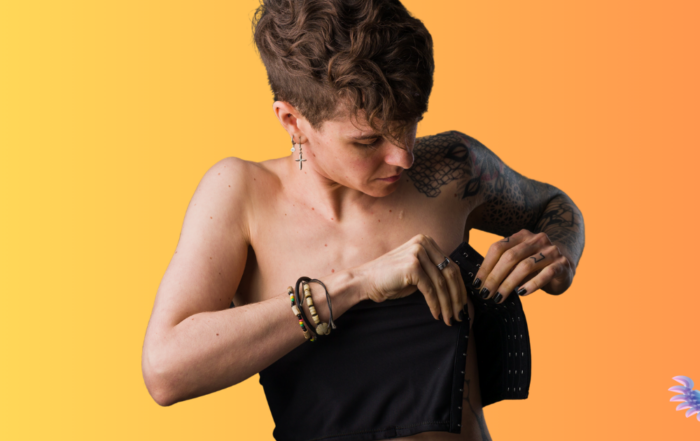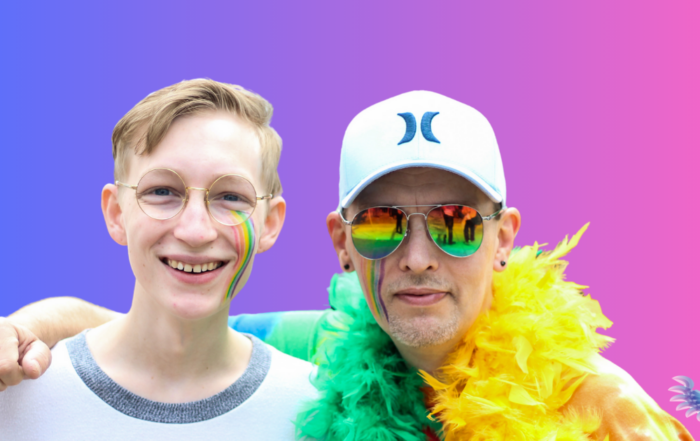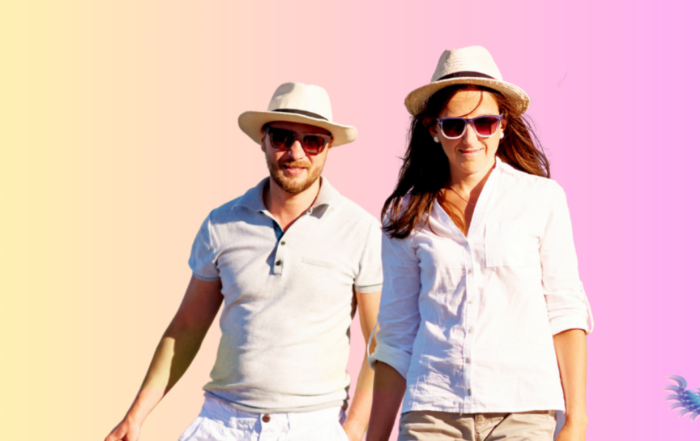February is LGBTQ+ History Month in the UK, coinciding with a major celebration of the 2003 abolition of Section 28
In 1988, Section 28 was enacted in the UK by Margaret Thatcher´s Conservative government to “Prohibit the promotion of homosexuality” by local authorities. That included the prohibition to schools to talk about, discuss or promote materials suggesting that homosexuality was a valid option to live one´s life. That permeated into society and certainly school life, where people didn´t feel safe to be open about their sexual orientation and/or gender identities. Ridiculously so, Section 28 was only abolished in 2000 in Scotland and in 2003 in the rest of the UK. This milestone inspired the celebration of the Month of LGBTQ+ History in the UK every February from 2005.
Only 20 years ago, when I was living in England, it wasn´t safe to be openly queer. There was an infamous Section 28 in place, which prohibited the “promotion of homosexuality”, as if sexual orientation could be promoted! Schools had to adhere to that Section, and probably the accepted culture was aligned with the notion that “it was something wrong”.
I happened to be studying for my MBA during that period, and this is my account of those days under infamous Section 28.
From 1999 to 2001 I was living in England, studying my MBA at the University of Kent. Being a woman was only in my mind, once it was unthinkable to tell anyone about how I felt. The word transgender didn´t mean anything to me yet. That understanding came much later in life, when a doctor on the radio explained what it was, or rather, who I was. In 30 minutes, all my confusion disappeared, I called the doctor from the radio and started my transition.
When I arrived at my room at University, I found out that I was going to share the kitchen with seven other students, all from England. Funny, I thought, all other corridors have people of all nationalities, but they put me with the Brits because I have an English last name, even though I am Mexican.
The next night my new neighbors knocked on my door and invited me to the pub, so we could get to know each other.
“Do you want a pint, mate?” John asked.
“I don’t know how much that is,” I answered, “we use liters. “
So, he showed me a pint. Oh no, that’s too much, mate. I’ll have half a pint.
The whole table laughed at me and John asked, “What are you, a bloody woman?” (Well, actually, I was!) “Blokes drink pints, half pints are only for women,” he said. But I insisted on having my half pint, and though I received some strange looks from the men, my neighbors let it go that time. Being from Mexico, I assumed maybe they thought it was a ‘cultural thing’, or that I hadn’t understood the concept well.
Up until I transitioned many years later, I wasn’t aware of what was happening in the LGBTQ+ world. I never had queer friends, not because I didn´t want to, but because no one was openly queer, including me.
The only clue that there might have been some queer people at University, was a mentioning of an LGBTQ+ support line in my welcoming brochure. In my whole stay, I never came across a single queer person at school; how unlikely do you think that was? Impossible, I would say!
Now I get it; there are very old laws still in place in the UK. I found this out when a hungry student had run out of money and credit with friends, and decided to ‘dine-and-dash’ from the university´s garden, to the shock of the cleaner who caught him. He was immediately deported. True story.
They also closed the nightclubs very early, so “people don´t get very drunk”, but that backfires every single time, once it causes tremendous anxiety in people who rush their drinks before they close, so they end up completely wasted in a record time, causing more accidents than if they had taken it slowly.
Back to my university life, I succumbed to peer pressure and started drinking full pints, thereby demonstrating how “manly” I was when I drank 13 pints one night -which I promised myself never to try again- and was accepted as one of the blokes. Never again they suspected that I might have been queer.
I didn’t know what to make out of my inner sense of self, which is my female gender identity. It was very confusing to me that I liked girls, and the only term I knew back then was “gay”, and I knew I wasn´t. That made me go back to my thoughts and never tell anyone or act upon it. Maybe if only schools hadn’t been prohibited to explain diversity and gender to students, my life would have been very different. My school life would have been substantially richer if everyone had been allowed to be openly diverse, that’s for sure!
It wasn’t meant to be for me…but wait! Something marvelous did happen one night. I was invited to a party called The Rocky Horror Show, at the University´s night club The Venue. “Men wear women clothes” my friends explained to me. Oh my God! I need to be there! I wore a very short miniskirt, and I was a full success among the girls, unlike every other time that I went to the very same place and tried to meet someone. That was odd, I thought, maybe they´re lesbians still in the closet and they found an opportunity to live their fantasies? I didn’t make much out of it, but I remember myself suddenly catching my image in a big mirror and saying: This is right!
Years later it hit me that the explanation of why I was successful with girls that night was tremendously profound and a very different story: I was myself for once, everything made sense, I was happy, and I was projecting a very attractive self that they could unconsciously pick up.
But a homophobic law still in place in the 21st century is difficult to believe! That´s a ridiculous legacy of Margaret Thatcher, finally abolished in 2003. In the wake of its abolition, the UK started to celebrate the LGBTQ+ History Month every February since 2005. That doesn’t mean that things changed overnight and that bigotry immediately ceased to exist, but the progress made by the LGBTQ+ community has been huge in the last years.
There are many iconic personalities who have fought for the movement in the UK, but my favorite is Sir Ian McKellen, or if you´re a Lord of the Rings nerd like I am, Gandalf! McKellen came out publicly in 1988 during a BBC Radio 3 show discussion of Section 28. That was such a brave move!
In McKellen’s words: “The only good thing I can think to say about Section 28 is that it finally encouraged me to come out. A bit late in the day, but it remains the best thing I ever did; Coming out actually made me a better performer. What happened immediately, according to friends, is that I became not just a happier person, but a better actor.” His only regret was not having come out sooner, when his parents were alive.
I can recite Galadriel’s opening speech word by word: The world is changed… I feel it in the water, I feel it in the earth… BOY, HAS THE WORLD CHANGED!
Many years passed, I transitioned and fought with many Balrogs myself: Juliette the gray… that was what they used to call me. I´m Juliette the rainbow! And I come back to you now, at the turn of the tide….
Bloody proud to be a tiny part of that history!
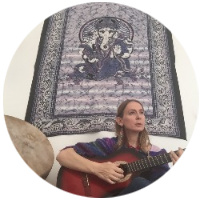
February is LGBTQ+ History Month in the UK, coinciding with a major celebration of the 2003 abolition of Section 28
In 1988, Section 28 was enacted in the UK by Margaret Thatcher´s Conservative government to “Prohibit the promotion of homosexuality” by local authorities. That included the prohibition to schools to talk about, discuss or promote materials suggesting that homosexuality was a valid option to live one´s life. That permeated into society and certainly school life, where people didn´t feel safe to be open about their sexual orientation and/or gender identities. Ridiculously so, Section 28 was only abolished in 2000 in Scotland and in 2003 in the rest of the UK. This milestone inspired the celebration of the Month of LGBTQ+ History in the UK every February from 2005.
Only 20 years ago, when I was living in England, it wasn´t safe to be openly queer. There was an infamous Section 28 in place, which prohibited the “promotion of homosexuality”, as if sexual orientation could be promoted! Schools had to adhere to that Section, and probably the accepted culture was aligned with the notion that “it was something wrong”.
I happened to be studying for my MBA during that period, and this is my account of those days under infamous Section 28.
From 1999 to 2001 I was living in England, studying my MBA at the University of Kent. Being a woman was only in my mind, once it was unthinkable to tell anyone about how I felt. The word transgender didn´t mean anything to me yet. That understanding came much later in life, when a doctor on the radio explained what it was, or rather, who I was. In 30 minutes, all my confusion disappeared, I called the doctor from the radio and started my transition.
When I arrived at my room at University, I found out that I was going to share the kitchen with seven other students, all from England. Funny, I thought, all other corridors have people of all nationalities, but they put me with the Brits because I have an English last name, even though I am Mexican.
The next night my new neighbors knocked on my door and invited me to the pub, so we could get to know each other.
“Do you want a pint, mate?” John asked.
“I don’t know how much that is,” I answered, “we use liters. “
So, he showed me a pint. Oh no, that’s too much, mate. I’ll have half a pint.
The whole table laughed at me and John asked, “What are you, a bloody woman?” (Well, actually, I was!) “Blokes drink pints, half pints are only for women,” he said. But I insisted on having my half pint, and though I received some strange looks from the men, my neighbors let it go that time. Being from Mexico, I assumed maybe they thought it was a ‘cultural thing’, or that I hadn’t understood the concept well.
Up until I transitioned many years later, I wasn’t aware of what was happening in the LGBTQ+ world. I never had queer friends, not because I didn´t want to, but because no one was openly queer, including me.
The only clue that there might have been some queer people at University, was a mentioning of an LGBTQ+ support line in my welcoming brochure. In my whole stay, I never came across a single queer person at school; how unlikely do you think that was? Impossible, I would say!
Now I get it; there are very old laws still in place in the UK. I found this out when a hungry student had run out of money and credit with friends, and decided to ‘dine-and-dash’ from the university´s garden, to the shock of the cleaner who caught him. He was immediately deported. True story.
They also closed the nightclubs very early, so “people don´t get very drunk”, but that backfires every single time, once it causes tremendous anxiety in people who rush their drinks before they close, so they end up completely wasted in a record time, causing more accidents than if they had taken it slowly.
Back to my university life, I succumbed to peer pressure and started drinking full pints, thereby demonstrating how “manly” I was when I drank 13 pints one night -which I promised myself never to try again- and was accepted as one of the blokes. Never again they suspected that I might have been queer.
I didn’t know what to make out of my inner sense of self, which is my female gender identity. It was very confusing to me that I liked girls, and the only term I knew back then was “gay”, and I knew I wasn´t. That made me go back to my thoughts and never tell anyone or act upon it. Maybe if only schools hadn’t been prohibited to explain diversity and gender to students, my life would have been very different. My school life would have been substantially richer if everyone had been allowed to be openly diverse, that’s for sure!
It wasn’t meant to be for me…but wait! Something marvelous did happen one night. I was invited to a party called The Rocky Horror Show, at the University´s night club The Venue. “Men wear women clothes” my friends explained to me. Oh my God! I need to be there! I wore a very short miniskirt, and I was a full success among the girls, unlike every other time that I went to the very same place and tried to meet someone. That was odd, I thought, maybe they´re lesbians still in the closet and they found an opportunity to live their fantasies? I didn’t make much out of it, but I remember myself suddenly catching my image in a big mirror and saying: This is right!
Years later it hit me that the explanation of why I was successful with girls that night was tremendously profound and a very different story: I was myself for once, everything made sense, I was happy, and I was projecting a very attractive self that they could unconsciously pick up.
But a homophobic law still in place in the 21st century is difficult to believe! That´s a ridiculous legacy of Margaret Thatcher, finally abolished in 2003. In the wake of its abolition, the UK started to celebrate the LGBTQ+ History Month every February since 2005. That doesn’t mean that things changed overnight and that bigotry immediately ceased to exist, but the progress made by the LGBTQ+ community has been huge in the last years.
There are many iconic personalities who have fought for the movement in the UK, but my favorite is Sir Ian McKellen, or if you´re a Lord of the Rings nerd like I am, Gandalf! McKellen came out publicly in 1988 during a BBC Radio 3 show discussion of Section 28. That was such a brave move!
In McKellen’s words: “The only good thing I can think to say about Section 28 is that it finally encouraged me to come out. A bit late in the day, but it remains the best thing I ever did; Coming out actually made me a better performer. What happened immediately, according to friends, is that I became not just a happier person, but a better actor.” His only regret was not having come out sooner, when his parents were alive.
I can recite Galadriel’s opening speech word by word: The world is changed… I feel it in the water, I feel it in the earth… BOY, HAS THE WORLD CHANGED!
Many years passed, I transitioned and fought with many Balrogs myself: Juliette the gray… that was what they used to call me. I´m Juliette the rainbow! And I come back to you now, at the turn of the tide….
Bloody proud to be a tiny part of that history!

